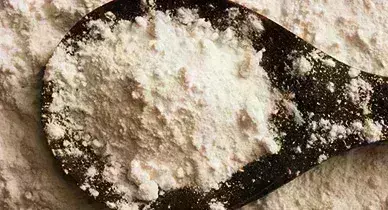- Home
- Medical news & Guidelines
- Anesthesiology
- Cardiology and CTVS
- Critical Care
- Dentistry
- Dermatology
- Diabetes and Endocrinology
- ENT
- Gastroenterology
- Medicine
- Nephrology
- Neurology
- Obstretics-Gynaecology
- Oncology
- Ophthalmology
- Orthopaedics
- Pediatrics-Neonatology
- Psychiatry
- Pulmonology
- Radiology
- Surgery
- Urology
- Laboratory Medicine
- Diet
- Nursing
- Paramedical
- Physiotherapy
- Health news
- Fact Check
- Bone Health Fact Check
- Brain Health Fact Check
- Cancer Related Fact Check
- Child Care Fact Check
- Dental and oral health fact check
- Diabetes and metabolic health fact check
- Diet and Nutrition Fact Check
- Eye and ENT Care Fact Check
- Fitness fact check
- Gut health fact check
- Heart health fact check
- Kidney health fact check
- Medical education fact check
- Men's health fact check
- Respiratory fact check
- Skin and hair care fact check
- Vaccine and Immunization fact check
- Women's health fact check
- AYUSH
- State News
- Andaman and Nicobar Islands
- Andhra Pradesh
- Arunachal Pradesh
- Assam
- Bihar
- Chandigarh
- Chattisgarh
- Dadra and Nagar Haveli
- Daman and Diu
- Delhi
- Goa
- Gujarat
- Haryana
- Himachal Pradesh
- Jammu & Kashmir
- Jharkhand
- Karnataka
- Kerala
- Ladakh
- Lakshadweep
- Madhya Pradesh
- Maharashtra
- Manipur
- Meghalaya
- Mizoram
- Nagaland
- Odisha
- Puducherry
- Punjab
- Rajasthan
- Sikkim
- Tamil Nadu
- Telangana
- Tripura
- Uttar Pradesh
- Uttrakhand
- West Bengal
- Medical Education
- Industry
Tricalcium phosphate good option for reducing dentin sensitivity

Dentin hypersensitivity (DH), referred to as the "common cold of dentistry," is defined as short, sharp pain arising from the exposed dentin in response to thermal, evaporative, tactile, osmotic, or chemical stimuli that cannot be ascribed to any other form of dental defect or pathology.
Tricalcium phosphate good option for reducing dentin sensitivity suggests a new study published in the Scientific Reports
The 4-week double-blind clinical trial to manage dentin hypersensitivity (DH) using different desensitizing toothpastes was conducted. 53 participants with dentin hypersensitivity were enrolled in this trial.
The participants were randomized into 3 groups: Group N; no active ingredient-containing toothpaste (Pleasia fluoride-free), Group SC; a toothpaste containing strontium chloride (Sensodyne Original), and Group TP; a toothpaste containing tricalcium phosphate (Vussen S). They were instructed to brush their teeth manually for 3 min, 3 times per day for 4 weeks with the allocated toothpastes, and were assessed at baseline (0), 2, and 4 weeks, respectively. Schiff sensitivity score was recorded to 3 different stimuli (air-blast, cold, and acid) at each assessment.
Overall dentin hypersensitivity was also assessed using a visual analog scale (VAS). The longer participants used the toothpastes, the greater reduction in dentin hypersensitivity in all groups to the three stimuli. Group TP demonstrated significant reduction of dentin hypersensitivitycompared to group N for air-blast and cold stimuli. Group TP showed significantly lower VAS than group N and SC. Tricalcium phosphate containing toothpaste used in this trial was most useful to reduce dentin hypersensitivity.
It can be one of the treatment options that alleviate dentin hypersensitivity.
The authors concluded that the use of toothpaste containing tricalcium phosphate can reduce dentin hypersensitivity (DH) effectively. If clinicians use it properly, it can be the first option to treatment of initial DH or an alternative to composite resin restoration at cervical lesion.
Reference:
Jang, JH., Oh, S., Kim, HJ. et al. A randomized clinical trial for comparing the efficacy of desensitizing toothpastes on the relief of dentin hypersensitivity. Sci Rep 13, 5271 (2023). https://doi.org/10.1038/s41598-023-31616-6
Dr. Shravani Dali has completed her BDS from Pravara institute of medical sciences, loni. Following which she extensively worked in the healthcare sector for 2+ years. She has been actively involved in writing blogs in field of health and wellness. Currently she is pursuing her Masters of public health-health administration from Tata institute of social sciences. She can be contacted at editorial@medicaldialogues.in.
Dr Kamal Kant Kohli-MBBS, DTCD- a chest specialist with more than 30 years of practice and a flair for writing clinical articles, Dr Kamal Kant Kohli joined Medical Dialogues as a Chief Editor of Medical News. Besides writing articles, as an editor, he proofreads and verifies all the medical content published on Medical Dialogues including those coming from journals, studies,medical conferences,guidelines etc. Email: drkohli@medicaldialogues.in. Contact no. 011-43720751


